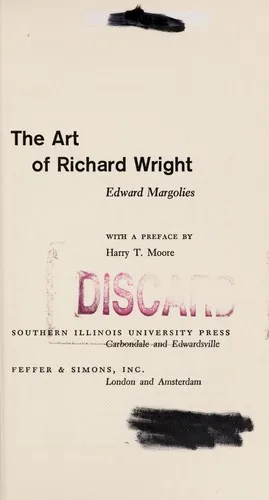
Richard Wright's major themes in both fiction and nonfiction -- freedom, existential horror, and black nationalism--are here discussed for the first time in a book-length critical work. Although Wright's fame never diminished in Europe, at the time of his death in 1960 he had long since been dismissed in America as a phenomenally successful Negro author of the thirties and forties whose "protest" literature had subsequently become unfashionable. But, as Edward Margolies illustrates, Wright is important both for his literary achievements and as a Negro spokesman of the 1940's who fairly accurately predicted the events of the 1960's, having studied their causes. Alienation, dread, fear, and the view that one must construct oneself out of the chaos of existence--all elements of his fiction--were for Wright a means of survival and constituted a bond with the existentialist authors Camus and Sartre with whom he was sometimes associated in France in the late forties.
Edward Margolies
Edward Margolies was an American literary scholar and translator known for his influential work on Yiddish literature. His most famous work, "The Golden Peacock: A Worldwide Anthology of Yiddish Poetry," showcased the rich and diverse tradition of Yiddish poetry. Margolies' translations brought Yiddish literature to a wider audience, preserving its cultural significance.